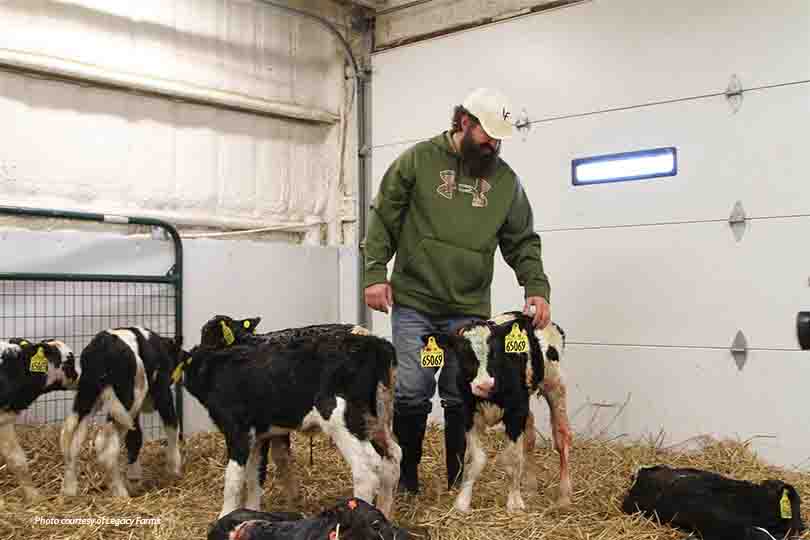It’s calving season for many across the state.
Dr. Bob Judd, host of Texas Vet News on the Texas Farm Bureau (TFB) Radio Network, offers tips cattlemen and women can follow in the first few hours after a calf is born to increase the rate of survival.
“An unassisted delivery of the calf is important, so it is wise to observe the cow from a distance and give her the chance to deliver the calf naturally without your assistance,” Judd said, referencing an article from Dr. Sheila McGuirk from the University of Wisconsin in Dairy Herd Management.
After a calf’s feet appear, the cow should be given about an hour to deliver the calf before assisting in the delivery.
If feet are not noted after an hour of hard labor, the cow should be examined to make sure the fetus is positioned correctly for delivery.
“If there is an abnormal presentation and you wait too long, the calf may not survive,” Judd said.
After delivery, the calf should be sitting up on the sternum in five minutes, attempting to stand in 15 minutes, standing in an hour and nursing in about two hours.
“Any calf not responding in this manner should be examined as there may be a problem,” Judd said.
At birth, the calf’s body temperature is elevated. It should then decline to a normal of 101-102 degrees Fahrenheit within about an hour.
“If the calf is not active and shivering, the temperature will continue to drop,” Judd said. “These calves can get weak and die from hypothermia in as little as one to two hours in wintertime temperatures, even in Texas.”
If the calf is unresponsive, breathing irregularly or has blue coloring in its mucus membranes, place the calf in a sitting position to help it breathe.
“Use a clean, dry towel to rub the calf aggressively to aid in drying the calf and to stimulate respiration,” Judd said. “Stimulate the calf by placing fingers in the ears and nose as well as clearing the mouth and nose to aid in breathing.”

